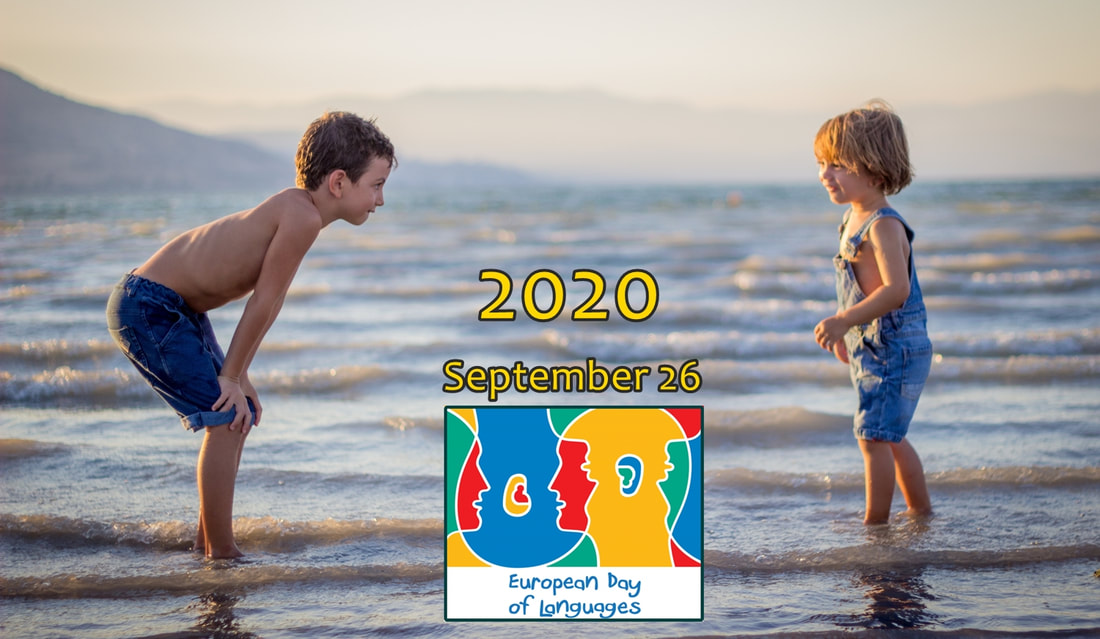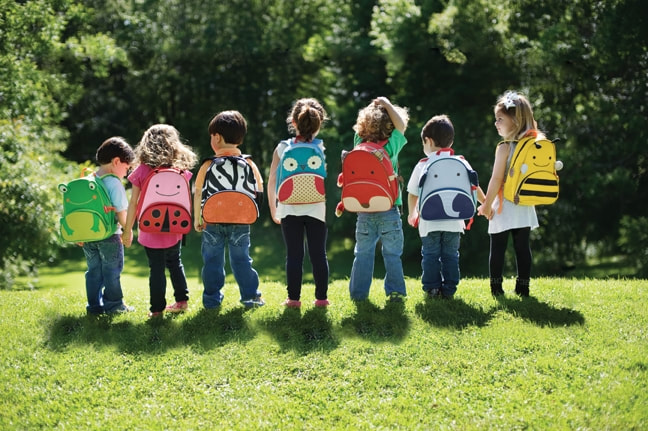2020: Not a good year for language holidays, gap years abroad and international student exchange.
And yet, Global Native kids made better language progress than ever, despite the pandemic and school closures. How?
They made each other laugh.
September 26 is the European Day of Languages.
First, the basics of learning languages as a Global Native:
If you want to build a house, you don't start off with a brick. You start with an idea on how you want to live. For a Global Native, learning a language starts with the wish to understand.
Our key ingredients are a child's natural curiosity, sociability and playfulness.
We add games, songs and stories. Then we give it time to grow.
We know: Children will always have something to say to each other.
Find out here how our kids communicate throughout the year!
We add games, songs and stories. Then we give it time to grow.
We know: Children will always have something to say to each other.
Find out here how our kids communicate throughout the year!
School closures in March soon made clear what COVID-19 means for long planned and joyfully anticipated language holidays and student exchanges: Really bad news.
However, not quite as bad for Global Native kids: They're in touch with their language partners all year round, most of them daily. To put even more spice into their conversations during lockdown we had an idea: Talk about the stuff you don't find in the dictionary. And make each other laugh!
However, not quite as bad for Global Native kids: They're in touch with their language partners all year round, most of them daily. To put even more spice into their conversations during lockdown we had an idea: Talk about the stuff you don't find in the dictionary. And make each other laugh!
| | Explaining humour. |
Explaining a joke usually kills it. Not so, if you're really keen to fully grasp a lingo and get stuck with something you just don't get. And it isn't just about jokes! Kids encounter all sorts of unfamiliar idioms and phrases, bewildering puns, local sayings and regional slang terms when they read a book, watch a film or listen to a song in another language.
We wanted them to use their time during lockdown well, so we declared it a challenge:
Every time you come across something you don't understand and can't find in the dictionary, ask your language partner - and, if need be, their parents or siblings - to put you in the picture. Every time you feel you don't get the joke or don't understand the pun: Ask!
And whatever makes you laugh in your own tongue: Share it!
We wanted them to use their time during lockdown well, so we declared it a challenge:
Every time you come across something you don't understand and can't find in the dictionary, ask your language partner - and, if need be, their parents or siblings - to put you in the picture. Every time you feel you don't get the joke or don't understand the pun: Ask!
And whatever makes you laugh in your own tongue: Share it!
| | The WWFF factor: |
Slapstick or black humour, simple comedy or highly political wit - not all laughter is equal.
In fact, the differences are amazing. Just take Mr. Bean. You either love him or you can't stand him. Mr. Bean polarizes. Back in the Sixties and Seventies, there was Luis de Funès. He made all generations roll with laughter, others turned off their TV sets the moment they saw his face. And hundreds of millions of avid Monty Python fans cannot understand how anyone would not find them hilarious. But their antics don't resonate with everyone either.
There is a strong bond in shared humour.
In fact, the differences are amazing. Just take Mr. Bean. You either love him or you can't stand him. Mr. Bean polarizes. Back in the Sixties and Seventies, there was Luis de Funès. He made all generations roll with laughter, others turned off their TV sets the moment they saw his face. And hundreds of millions of avid Monty Python fans cannot understand how anyone would not find them hilarious. But their antics don't resonate with everyone either.
There is a strong bond in shared humour.
| | If it's a good one, share it! |
Translating humour across a language barrier - it turns out to be a real favourite with all age groups. What better way to dive into a lingo than to make it your own! Kids love it, they love taking their parents on board too. So this is how we celebrate this year's European Day of Languages: We're having a good laugh together, we read between the lines, we check our comedy and satire in other languages!
Visit FAMILIAR LANGUAGES to see how Global Native kids grow up multilingual.
Find out more about the European Day of Languages here!
Find out here how to become a Global Native family and join the community!
Care to give it a go?
Try to translate some of these into another language ...
Gandhi walked barefoot most of the time, which produced an impressive set of calluses on his feet. He also ate very little, which made him rather frail and with his odd diet, he suffered from bad breath. This made him a super calloused fragile mystic hexed by halitosis.
What did the beaver say to the tree? "It's been nice gnawing you!"
Why can't a bicycle stand up on its own? Because it's two tired.
Why was six scared of seven? Because seven "ate" nine.
What’s the difference between a poorly dressed man on a unicycle and a well-dressed man on a bicycle? Attire.
What's the difference between a cat and a complex sentence?
A cat has claws at the end of its paws and a complex sentence has a pause at the end of its clause.
Try to translate some of these into another language ...
Gandhi walked barefoot most of the time, which produced an impressive set of calluses on his feet. He also ate very little, which made him rather frail and with his odd diet, he suffered from bad breath. This made him a super calloused fragile mystic hexed by halitosis.
What did the beaver say to the tree? "It's been nice gnawing you!"
Why can't a bicycle stand up on its own? Because it's two tired.
Why was six scared of seven? Because seven "ate" nine.
What’s the difference between a poorly dressed man on a unicycle and a well-dressed man on a bicycle? Attire.
What's the difference between a cat and a complex sentence?
A cat has claws at the end of its paws and a complex sentence has a pause at the end of its clause.



